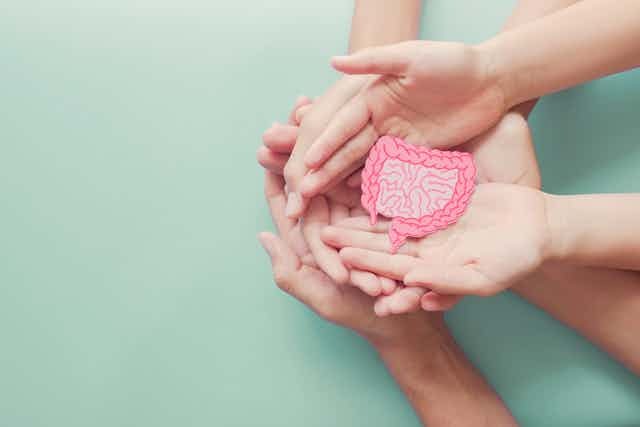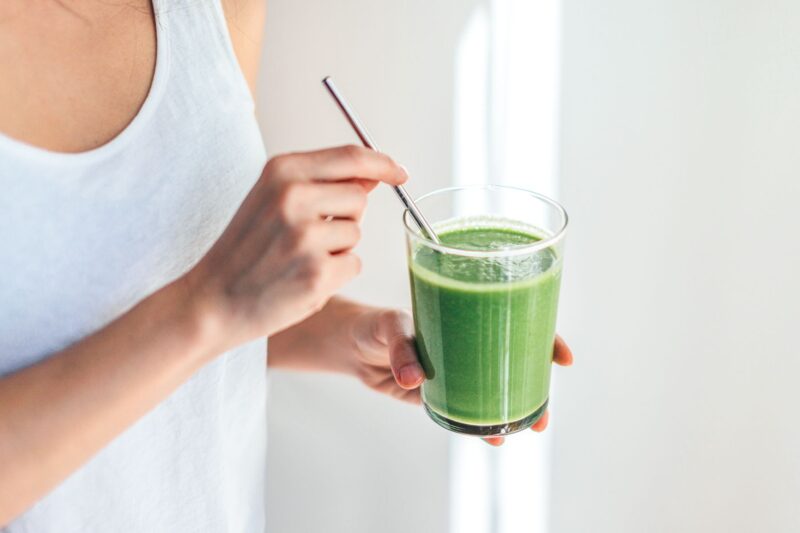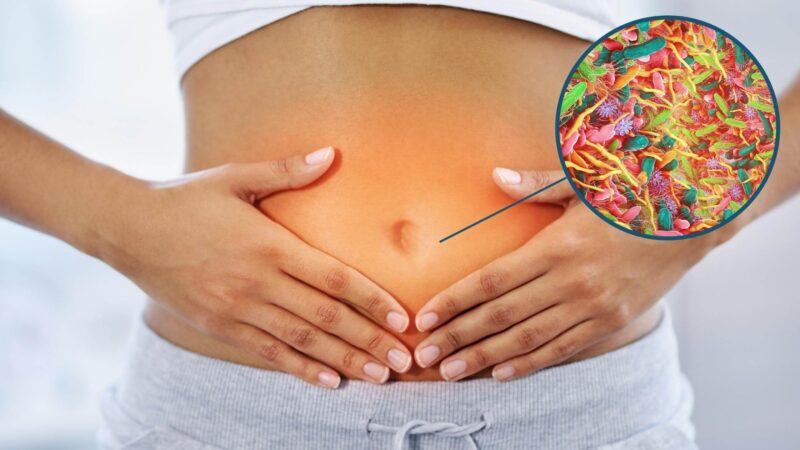Dietary and lifestyle changes that help the body’s natural mechanisms combat intestinal parasites, organisms like helminths or protozoa that may live in the gastrointestinal tract, are called parasite cleanses.
These cleanses may include dietary changes and the addition of herbal compounds traditionally linked to digestive assistance, but they do not replace medical diagnosis or treatment.
If you’ve been curious about a more natural remedy to a parasite cleanse, particularly regarding parasitic infections or how to support detoxification in a balanced way, you might look into IverPure as a starting point for research.
This guide walks you through a holistic, non-chemical parasite detox protocol, covering phases, gut flora restoration, common symptoms, hydration strategies, and clinical safety measures.

Phases of a Holistic Parasite Cleanse Protocol
A multi-phase approach may help individuals adjust gradually to dietary changes, potentially supporting digestion and overall comfort.
| Phase | Focus | Key Practices |
| Preparation | Prime the body for changes | Emphasize fiber (e.g., whole grains, vegetables), include lean proteins and healthy fats, maintain hydration, and prioritize consistent sleep. |
| Elimination | Implement dietary adjustments | Incorporate foods with traditional digestive support, such as garlic, pumpkin seeds, or bitter herbs; avoid ultra-processed and high-sugar foods. |
| Recovery | Support microbial balance | Reintroduce probiotic-rich foods (e.g., yogurt, sauerkraut), along with prebiotic fiber sources to help nourish beneficial gut bacteria. |
| Maintenance | Promote long-term balance | Continue with a diverse, nutrient-rich diet; periodically review dietary habits with a healthcare provider. |
The Role of Gradual Dietary Changes
When adjusting your diet, especially as part of a cleanse, making changes slowly gives your digestive system time to adapt. Abrupt shifts in what you eat can lead to temporary discomforts like bloating, gas, or cramping, as your gut adjusts to new types of food, fiber levels, or the absence of processed ingredients.
Taking a gradual approach also helps prevent sudden nutrient imbalances. For example, if you cut out major food groups too quickly without suitable replacements, your body might miss out on key vitamins, minerals, or calories. By easing into new eating patterns over several days or weeks, you reduce the risk of these side effects and give your body a better chance to respond positively.
In short: slow changes make the process more sustainable and far less likely to disrupt your digestion or energy levels.
Microbiome Support and Gut Health

Your gut microbiome — the vast network of beneficial bacteria living in your intestines — plays a central role in digestion, nutrient absorption, immune response, and even mental clarity. When you’re doing a parasite cleanse or making dietary changes, supporting this internal ecosystem becomes even more important.
A healthy microbiome thrives on a combination of fiber, fermented foods, and polyphenol-rich plants. These help feed beneficial bacteria and maintain balance.
For example:
- Fiber-rich meals like oatmeal, lentils, flaxseeds, or steamed broccoli provide prebiotic fuel that good bacteria need to grow.
- Fermented foods such as kefir, sauerkraut, kimchi, and plain yogurt with live cultures help reintroduce live probiotics directly into the gut.
- Polyphenol-rich foods like blueberries, green tea, olive oil, and dark chocolate offer antioxidant compounds that support microbial diversity and gut lining protection.
Even though scientific research on how these specific foods affect parasite counts is limited, their positive impact on overall gut health is well documented.
And since a resilient gut barrier is better at resisting harmful organisms, maintaining your microbiome can be a valuable part of a holistic cleanse — even if it’s not a direct parasite killer.
In short: focusing on whole, plant-based, and fermented foods helps your body rebuild and sustain the microbial balance that supports long-term digestive strength.
Common Dietary Transition Effects and Self-Care Tips
When individuals make sudden dietary changes or reduce intake of processed foods, temporary side effects may occur. These may include:
- Changes in stool consistency
- Bloating or abdominal cramping
- Temporary fatigue or mild headaches
To manage these effects, consider the following general wellness practices that align with complementary and integrative health:
- Maintain hydration with water or non-caffeinated herbal infusions.
- Choose iron-containing and balanced meals to help prevent fatigue.
- Prioritize sleep and avoid abrupt changes to physical activity routines.
- Reintroduce new foods gradually.
- If symptoms become severe or persistent, pause adjustments and consult a healthcare provider.
Safety Guidelines and When to Seek Medical Advice

A physician evaluation is necessary before starting any cleanse or detox plan, particularly one that involves suspected parasites, to treat infections effectively. To identify the presence of parasitic organisms, a medical professional could suggest diagnostic tests (such as a stool examination).
Important safety information:
- Antiparasitic drugs with FDA approval should only be taken under a doctor’s supervision. Using veterinary products or self-dosing carries significant risks and is strongly discouraged.
- Herbal products and supplements should be carefully chosen. Labels stating Good Manufacturing Practices (GMP), third-party testing, and manufacturing in FDA-registered facilities should be sought after.
- Analyze brands critically. Red flags include unsubstantiated promises, a dearth of customer service, and customer complaints (such as nondelivery or hidden subscriptions).
Practical Non-Medical Steps to Support Digestion During a Cleanse
This section offers realistic, safe ways to support digestion and gut health as part of a gentle, non-medicated parasite cleanse. These steps are not a replacement for medical treatment, but may complement overall wellness when used responsibly:
1. Get a Medical Evaluation First
Before starting any cleanse, rule out actual infections or gastrointestinal issues by asking your doctor for lab tests such as stool analysis or blood work. This helps you avoid guessing and ensures you aren’t overlooking a more serious condition.
2. Begin with Gentle Dietary Shifts
Cut back on processed foods and gradually increase your intake of high-fiber foods like leafy greens, oats, beans, and root vegetables. This supports regular digestion and helps nourish good gut bacteria.
3. Add Natural Digestive Support Foods

Include traditional ingredients like ginger, garlic, and turmeric in cooking. While these don’t replace treatment, they’ve been long used to aid digestion and may support anti-inflammatory processes in the gut.
4. Support Your Gut Microbiome
Eat probiotic-rich foods in moderation — such as plain yogurt, sauerkraut, or kefir — and combine them with prebiotic fiber sources like onions, asparagus, or bananas to help maintain microbial balance.
5. Track What You Eat and How You Feel
Keep a short daily log of your meals, energy levels, and any digestive discomfort. This helps identify patterns and fine-tune your cleanse without guesswork.
Staying Safe with Balanced and Cautious Approaches
Natural methods like dietary changes and herbal support can be helpful for gut health, but they should never replace medical treatment — especially if a parasite infection has been diagnosed. Medical care is essential in confirmed cases.
It’s important to avoid practices that can do more harm than good, such as:
- Using untested or unsafe drugs
- Following extreme or restrictive diets that lack essential nutrients
- Trying to self-diagnose without lab testing
- Taking medicinal herbs or veterinary products without supervision
Instead, focus on gentle, supportive habits: eating nourishing whole foods, staying hydrated, resting, and getting medical advice when needed. These steps support your digestive system without putting your health at risk.

Conclusion
This article overviews lifestyle practices that promote digestive wellness through dietary changes and microbiome maintenance. It is not a replacement for medical guidance or care, particularly when there are known parasite diseases. People are advised to proceed cautiously with any cleanse, look for expert advice, and use evidence-based practices that honor the body’s need for equilibrium and sustenance.
FAQs
1. Can children or pregnant women try a parasite cleanse?
Parasite cleanses — especially those involving herbal supplements or restrictive diets — are not recommended for children or pregnant women without medical supervision. Their bodies have different metabolic and nutritional needs, and some herbs may be unsafe during pregnancy. Always consult a pediatrician or OB-GYN before starting any detox protocol.
2. How long should a full holistic parasite cleanse last?
There is no universal duration for a holistic cleanse, but a 4- to 6-week cycle is commonly suggested in naturopathic approaches. This includes time for preparation, elimination, recovery, and maintenance. However, the exact timeline should be tailored to individual responses and ideally supervised by a healthcare professional.
3. Are there any lab tests that can confirm if I need a parasite cleanse?
Yes. Stool tests, antibody tests, or PCR (polymerase chain reaction) tests can detect specific parasites or their DNA in your system. These diagnostic tools help distinguish between genuine parasitic infections and unrelated gastrointestinal symptoms — reducing the risk of misdiagnosis or unnecessary cleansing.
4. Can I continue taking medications or supplements during a cleanse?
In many cases, yes, but this depends on what you’re taking. Some herbal cleanse ingredients may interact with medications like blood thinners, immunosuppressants, or anti-inflammatory drugs. Always speak to a doctor or pharmacist before combining a parasite cleanse with your existing regimen.
5. What should I do if symptoms worsen during the cleanse?
If you experience worsening fatigue, nausea, severe cramping, fever, or blood in stool, stop the cleanse immediately and consult a medical professional. These could signal a real infection, adverse reaction, or nutritional imbalance that requires clinical care — not just lifestyle adjustments.

